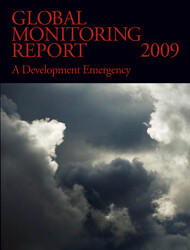
Republic of Congo: Technical Assistance Report-Assessment and Reform of Petroleum Product Subsidies
Republic of Congo: Technical Assistance Report-Assessment and Reform of Petroleum Product Subsidies
READ MORE...
Volume/Issue:
Volume 2025
Issue 074
Publication date:
ISBN:
Add to Cart by clicking price of the language and format you'd like to purchase
Available Languages and Formats
Topics covered in this book
This title contains information about the following subjects.
Click on a subject if you would like to see other titles with the same subjects.
Economics- Macroeconomics , Taxation - General , Fuel subsidies , Price gap , Leakages , Governance , Regressive , Republic of Congo , , Oil , Price structures , Value-added tax
Summary
This capacity development (CD) report assesses the fiscal implications of fuel subsidies in the Republic of Congo and proposes actionable measures to sustainably reduce their large and negative footprint on the country’s public finances. With an estimated cost of 4.5 percent of gross domestic product (GDP) in 2022 and 2.5 percent of GDP in 2023, fuel subsidy spending is higher than public expenditure on health (2.3 percent of GDP) and comparable to that on education (3.6 percent of GDP). The majority of fuel price subsidies do not directly benefit Congolese households but rather businesses with high consumption of diesel and aviation fuel. In addition to consumer subsidies, public companies of the downstream fuel sector benefit from direct subsidies estimated at over 2 percent of GDP per year on average between 2018 and 2023. Against this background, short- and medium-term measures can be taken to reach three objectives: i) rapidly reduce subsidy expenditures by focusing first on closing price gaps for large consumers while temporarily shielding households from large price increases, ii) effectively increase tax revenues from fuel consumption, and iii) strengthen the downstream fuel sector governance and strategic planning.
Copyright © 2010 - 2025
Powered by:
AIDC



